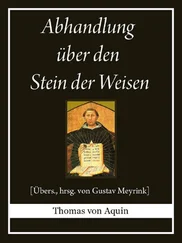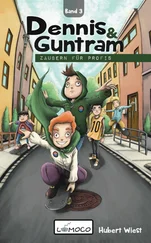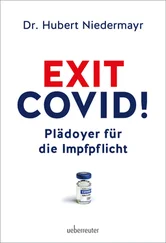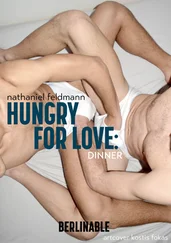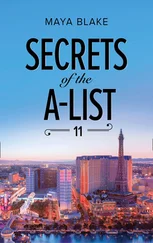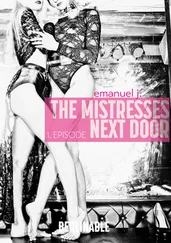Hubert Aquin - Next Episode
Здесь есть возможность читать онлайн «Hubert Aquin - Next Episode» весь текст электронной книги совершенно бесплатно (целиком полную версию без сокращений). В некоторых случаях можно слушать аудио, скачать через торрент в формате fb2 и присутствует краткое содержание. Год выпуска: 2001, ISBN: 2001, Издательство: McClelland & Stewart, Жанр: Современная проза, на английском языке. Описание произведения, (предисловие) а так же отзывы посетителей доступны на портале библиотеки ЛибКат.
- Название:Next Episode
- Автор:
- Издательство:McClelland & Stewart
- Жанр:
- Год:2001
- ISBN:9781551996240
- Рейтинг книги:3 / 5. Голосов: 1
-
Избранное:Добавить в избранное
- Отзывы:
-
Ваша оценка:
- 60
- 1
- 2
- 3
- 4
- 5
Next Episode: краткое содержание, описание и аннотация
Предлагаем к чтению аннотацию, описание, краткое содержание или предисловие (зависит от того, что написал сам автор книги «Next Episode»). Если вы не нашли необходимую информацию о книге — напишите в комментариях, мы постараемся отыскать её.
is a disturbing and yet deeply moving novel of dissent and distress. As he awaits trial, a young separatist writes an espionage story in the psychiatric ward of the Montreal prison where he has been detained. Sheila Fischman’s bold new translation captures the pulsating life of Aquin’s complex exploration of the political realities of contemporary Quebec.
Next Episode — читать онлайн бесплатно полную книгу (весь текст) целиком
Ниже представлен текст книги, разбитый по страницам. Система сохранения места последней прочитанной страницы, позволяет с удобством читать онлайн бесплатно книгу «Next Episode», без необходимости каждый раз заново искать на чём Вы остановились. Поставьте закладку, и сможете в любой момент перейти на страницу, на которой закончили чтение.
Интервал:
Закладка:
It was precisely eleven when I stepped out of the glass booth. And as I had an hour to kill, I strolled down rue Saint-François-Xavier to Craig Street and went into Mendelson’s. I love that place; when I go inside, I always have a hunch that I’m going to turn up General Colborne’s pocket watch or the revolver with which Papineau would have been well advised to kill himself. On my left as I came in was the collection of swords and sabres, including a Turkish scimitar I’d have liked to hang above my bed. But I knew from experience that their knives are generally overpriced; for that matter, I know the clerk and he’s intractable: no bargains to be got from him. I went to look at their helmets; I was particularly struck by a Henri II armet, a dilapidated object with a very impressive curve. They were asking forty dollars; I could have bargained a little and got it for less. It still would be an extravagance though, in view of what I had in my pocket. Besides, what would I do with this helmet? Next to it there was a full set of armour: gauntlet, couter and armband. It was sixteenth century, rather hard to identify but a fantastic model. The disjointed arms in black iron had something tragic about them and resembled a hero’s amputated limb. If it were on the wall of the apartment, I’d be unable to look at it without shuddering. To escape the clerk’s enthusiasm, I went back to the front of the store where a showcase held an amazing number of pocket watches and other timepieces. I’ve always been fascinated by old pocket watches: I like their two-part gold cases covered with arabesques and the engraved initials of their former owners. I looked at a few just to kill some time. Finally, I noticed a pocket watch, its gold dull but elegantly engraved with the monogram of some anonymous dead man. My mind was made up: I took out a ten-dollar bill. But the clerk reminded me that I’d have to add the cost of the chain, making twelve dollars and seventy-five cents in all. Oh well, it wasn’t exorbitant; and I really did want a pocket watch to measure lost time. The case, made in England, contained a Swiss movement which turned with eternal steadiness. I moved the hands to the correct time: precisely eleven-forty-five. My time had come.
I went back onto Craig Street, then climbed the steep hill up Saint-Urbain in the direction of Place d’Armes and crossed it diagonally. Before I entered the church, I bought a newspaper. As usual, I was careful to retrace my steps, zigzagging a little to thwart anyone who might be following me. I entered the Aldred building at 707, then left at once through the door on Notre-Dame. I ran across the street, and after a few athletic strides I was inside the dark church.
There was something terrifying about the silence inside: suddenly the mystery of this dark enchanting forest grabbed me by the throat. My footsteps rang out all around. I went to the transept, spotting no one in this deserted church and hearing nothing but the multiplied echo of my own procession. A shuddering purity filled this sacred place. I was a few seconds ahead of M, and while I waited, I sat very close to the secondary apse, lost in contemplation and prayer. I was careful not to open my newspaper in an excess of enthusiasm, though I longed to see if there was anything about the preliminary investigations. When M showed up, coming towards me from the altar (God knows how!), I repressed a surge of emotion. Everything happened so quickly. There was a sound on my right: the door of a confessional opened. I caught sight of a properly dressed man who came hurrying towards me. Then another individual seemed to loom out of the transept crossing. He too was respectable looking. M and I had time to exchange a desperate look but not a single word. They led us to the porch. We went out by way of the staircase on rue Saint-Sulpice, our wrists shackled. An unmarked car was waiting; we piled into the back, following the police orders. I know the rest: an informal event that had gone on not being fulfilled for three months’ time, an uninterrupted series of stains and humiliations that take me into the death-like density of writing.
I am alone, a prisoner in solitary, sneakily transferred to a nearly forgotten institution. Time has fled and it continues to move away while I am sinking here in a plasma of words. I’m awaiting a trial from which I can expect nothing and a revolution that will restore everything to me … Ah, I can’t wait to run again in the unoccupied vastness of my country, to see you in the flesh, my love, in another way than seeing you disappear into the frail opacity of the paper. Where are you? In Lausanne or in your apartment on Tottenham Court Road?
The endless period of my imprisonment is my undoing. How can I believe in the possibility of escape? A thousand times I’ve tried to get out: there’s nothing to be done. One link is still missing from the sequence of my escape. Actually, a logical conclusion will always be absent from this book. Armed violence is missing from my life and so is our boundless triumph. And I long to add this final chapter to my private history. I’m stifling here in the counter-grid of neurosis while I cover myself with ink and, through the impermeable glass, brush against your legs that keep me prisoner. My damp memories haunt me. Once again I’m walking on the Ouchy wharf between the ghost chateau and the Hôtel d’Angleterre. Failure comes back to me as forcefully as unfinished deeds and inert shreds of the tattered Alps. When I burst out of the Château d’Echandens, I’d already ruined everything.
“… I’ll take a table near the orchestra, anyway he doesn’t know me. You can join me when you’re done with him … You have to understand. I can’t take any more, my love. This whole business is turning out very badly for me. I’m afraid; yes, I fear the worst … I absolutely have to see you later on …”
The formulas stop in her mouth and fill me with a wave of vague fear. Everything is snarled; the time I can recall is fleeing. Movements are disjointed. As I prepare to leap, I wait endlessly for the proper moment, my finger on the trigger. From one moment to the next, surely I’ll find the word I need to fire at H. de Heutz. All is movement, yet I’m frozen here, waiting just a few seconds before I strike on target.
“… I’m afraid; yes, I fear the worst … I absolutely have to see you later on … Listen: above all, don’t forget the colour of the paper and the code, do you understand? You’ll find it in Stoffel’s account of the battle of Uxellodunum on page 218 … Now tell me: where are the children?”
At these words, I moved. And rather than continue all the way, I broke my synergetic thrust: something in me gave out, but H. de Heutz became aware of my presence. Two bullets grazed the mouldings on the Henri II credenza, even before I’d recovered enough for a counter-attack. The intermittent gunfire that went on then broke the sacred ritual of my mise-en-scène: our battle was fought in the most shameful disorder. I’m positive I hit H. de Heutz with at least one bullet; but I’ll never know for certain if I killed him. In fact, I’m quite sure I didn’t; indeed, I don’t even know exactly where I wounded him because I dashed to the garage door without turning around. That was when I heard another shot. He probably collapsed to the floor when he was hit and it was from that position that he tried desperately to shoot me. Or had he crouched behind a piece of furniture to protect himself, using that ruse to force me into being discovered? One thing is certain, I drove through the chateau grounds at the wheel of the blue Opel in a spirited finale without even protecting my rear. After failing at everything I wanted to do except my flight, I found myself after a hectic race on the terrace of the Hôtel d’Angleterre. That was when I realized that not only had I missed H. de Heutz, but by missing him narrowly, I had just missed my appointment and failed at my entire life.
Читать дальшеИнтервал:
Закладка:
Похожие книги на «Next Episode»
Представляем Вашему вниманию похожие книги на «Next Episode» списком для выбора. Мы отобрали схожую по названию и смыслу литературу в надежде предоставить читателям больше вариантов отыскать новые, интересные, ещё непрочитанные произведения.
Обсуждение, отзывы о книге «Next Episode» и просто собственные мнения читателей. Оставьте ваши комментарии, напишите, что Вы думаете о произведении, его смысле или главных героях. Укажите что конкретно понравилось, а что нет, и почему Вы так считаете.

